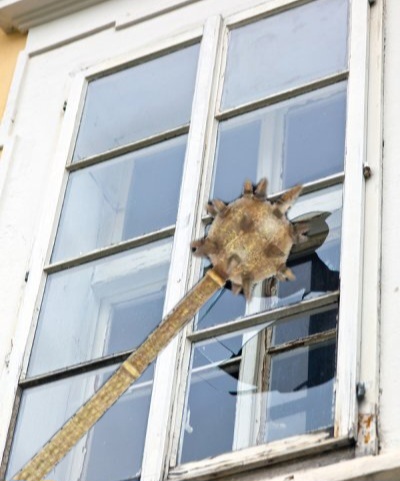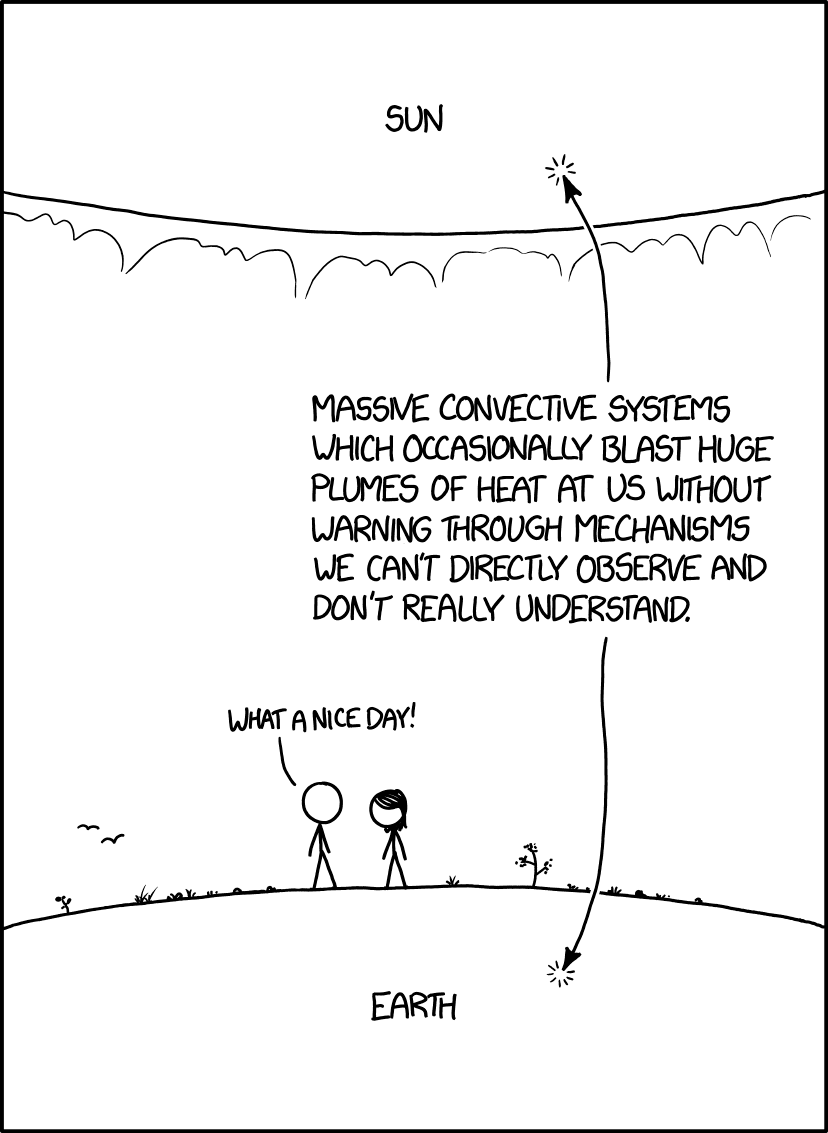Faced with the realization we are powerless to stop it, we simply admire it.
Maybe you’re powerless, I could stop it if I wanted to
Definitely something Mace would say
If you’ve ever wondered when a semicolon is preferable to a comma, I think this is a good example.
While some tech people behind the scenes are overwhelmed and scrambling to keep all kinds of electrical infrastructures up and running, or at least safe until the solar storm blast passes.
Plus they were expecting it, have been low-key preparing for weeks or months - knowing there’s a solar maximum - then much more actively a few days and hours before the event arrived, thanks to solar weather satellite forecasts being a reliable thing now.
And take pictures of it for our computer wallpapers
It doesn’t do anything the affects us other than the pretty colours the vast majority of the time, that’s the actual reason. The experience is just the colours, there’s nothing to worry about.
Deer when they see a car coming towards them at 50mph:
Humans: ooh, a new MacOS wallpaper
What else am I supposed to do? Have a panic attack? Cry? Shoot it?
Shoot it?
Don’t give the rednecks any ideas.
So if Mars doesn’t have the magnetic field and is getting hit with all the radiation, does that mean the surface of Mars is radioactive?
Radiation does not by definition make things it impacts radioactive, and most of the lingering effects that we associate with radiation have to do with radioactive particles that are left behind by the atmosphere. Since there is no particulate matter traveling between the sun and Mars (photons not withstanding), the surface of Mars would not be expected to acquire radioactive properties from an acute solar radiation event like this one. However, an entity on the surface of Mars would be exposed to radiation from the Sun, much more so than an entity on/near earth and it’s magnetosphere (Mars’ thin atmosphere and distance from the sun probably helps reduce that disparity relative to something in say low earth orbit, but I don’t think it fully equalizes or shifts the scales). I am not an astrophysicist, so there’s at least a 20% chance I got part of that wrong.
Isn’t solar wind particulate matter? Mostly hydrogen, a bit of other elements?
Wikipedia tells me:
This plasma mostly consists of electrons, protons and alpha particles
https://en.wikipedia.org/wiki/Solar_wind
Alpha particles also get created by radioactive alpha decay, so I’m guessing, that’s the radioactive part…
Just adding to this, some foods are actually irradiated for preservation purposes. If you’ve purchased premium ____, you may have had a bit of irradiated food. Given that widespread dna breakdown hasn’t occurred across the entire planet, irradiated matter is usually harmless.
Yes, and radiation shielding is a major challenge for humans on the mars surface.
Colors Out Of Space
Humans are Space Orks.
We all need to stop believing in this horrible world we live in and think happy thoughts.
But it’s* really pretty
Question. Do other animals care about the northern lights? Do any of them watch it?
Most probably wouldn’t even be able to see it.
What else are we supposed to do?









